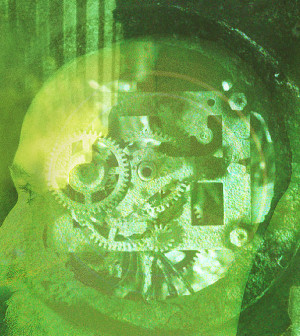- Could Your Grocery Store Meat Be Causing Recurring UTIs?
- Are You Making This Expensive Thermostat Error This Winter?
- Recognizing the Signs of Hypothyroidism
- 10 Strategies to Overcome Insomnia
- Could Artificial Sweeteners Be Aging the Brain Faster?
- Techniques for Soothing Your Nervous System
- Does the Water in Your House Smell Funny? Here’s Why
- Can a Daily Dose of Apple Cider Vinegar Actually Aid Weight Loss?
- 6 Health Beverages That Can Actually Spike Your Blood Sugar
- Treatment Options for Social Anxiety Disorder
Hormone Might Help Preemies’ Brains


A hormone used to reduce the need for blood transfusions might also protect the brains of premature babies, a new study suggests.
Synthetic erythropoietin (EPO), which stimulates red blood cell production, appears to prevent brain damage when used shortly after preterm birth, said lead researcher Dr. Petra Huppi, a professor of pediatrics and newborn medicine at the University of Geneva, in Switzerland.
“The real test of whether EPO protects the brains of these children will be when they are evaluated when they are older,” she said.
Infants born before the 32nd week of pregnancy face dire health risks, including brain damage and incomplete development of the brain, especially the part of the brain called white matter.
Many are left with long-term developmental disabilities, including motor and thinking problems, and attention and learning difficulties, the researchers noted.
Huppi noted that EPO, commonly used to treat anemia, is safe and has no side effects. It’s been used to treat premature infants for decades, she said. Its use as a performance enhancer in sports has been banned.
In the first step of the study, published in the Aug. 27 issue of the Journal of the American Medical Association, researchers reviewed MRI brain scans of 165 infants. Close to half had received three doses of EPO within two days of delivery.
MRI scans done when the infants were the equivalent age of a full-term birth found that the brains of babies who received EPO showed less damage than the brains of infants who hadn’t been given the hormone.
According to Huppi, this is the first study that has shown a benefit of EPO on the brains of preterm babies.
However, Dr. David Mendez, a neonatologist at Miami Children’s Hospital, remains skeptical.
“The role EPO has in protecting brain tissue is still theoretical and not proven,” he said. “This study raises more questions than it answers.”
Over the years, many different drugs have been tried to preserve the brain tissue of preemies, Mendez said. “The most recent incarnation of this is the use of EPO,” he said. But still more work is needed, Mendez said.
In this study, too few children were given EPO to say the findings weren’t purely by chance, he said. The association reported in the study does not prove a cause-and-effect relationship.
Mendez also said that although EPO has been used for years to reduce the need for blood transfusions in preemies, its use is falling out of favor.
“There has been some concern that EPO reduces white blood cell counts and there is some concern that EPO may predispose the baby to have an eye condition called ‘retinopathy of prematurity’ that can lead to blindness,” he said. “A lot of neonatologists don’t even use EPO anymore.”
As for the brain scans, Mendez said it’s easy to tell a completely normal brain from a completely damaged one, but it’s not as easy to evaluate the area between the two, which is where most preemies fall, he said.
Huppi said the next stage of the study is to test the children when they are 2 and 5 years old. This assessment will confirm whether or not EPO really protects the brains of premature babies, she said.
“If this does turn out to be the case, this will be an important step in preventing brain damage and its consequences in premature babies,” Huppi said.
More information
For more about premature babies, visit the March of Dimes.
Source: HealthDay
Copyright © 2026 HealthDay. All rights reserved.










